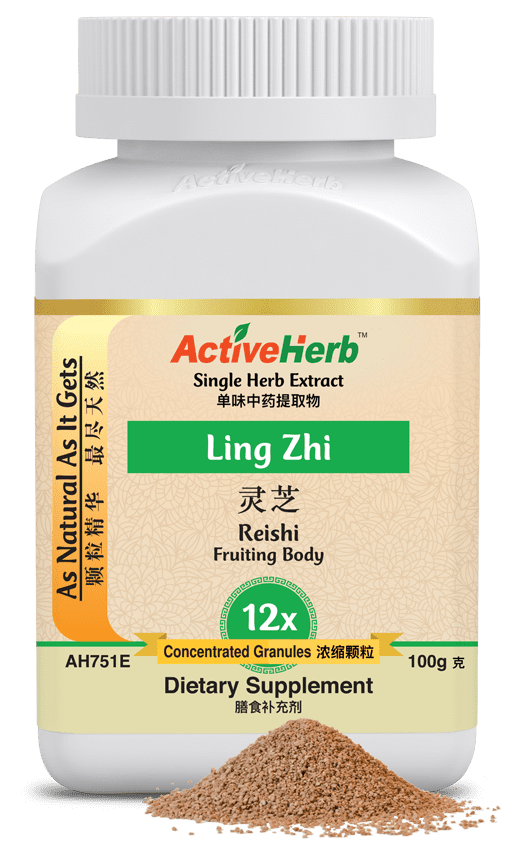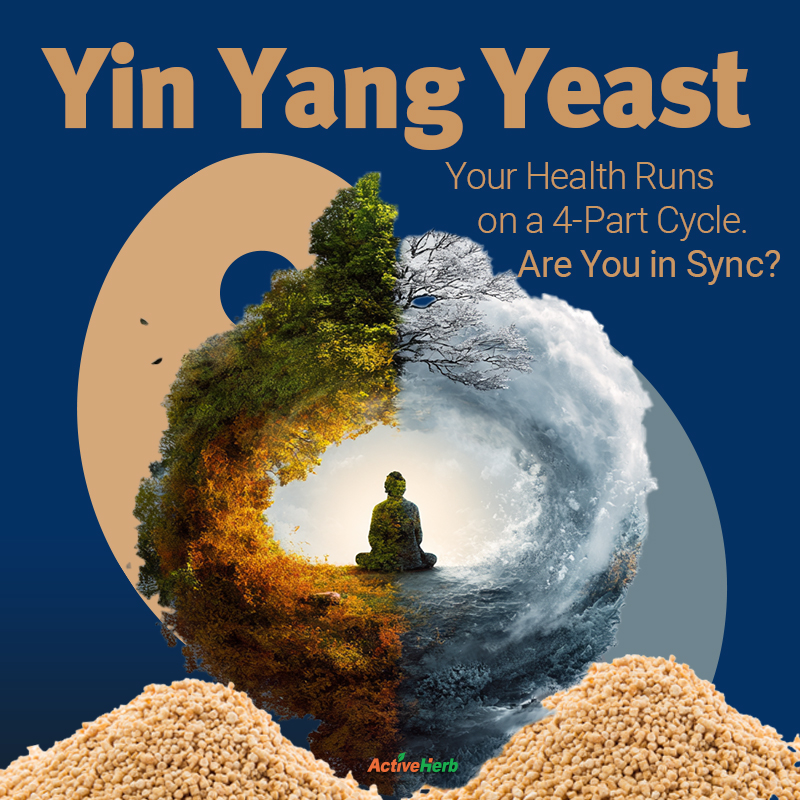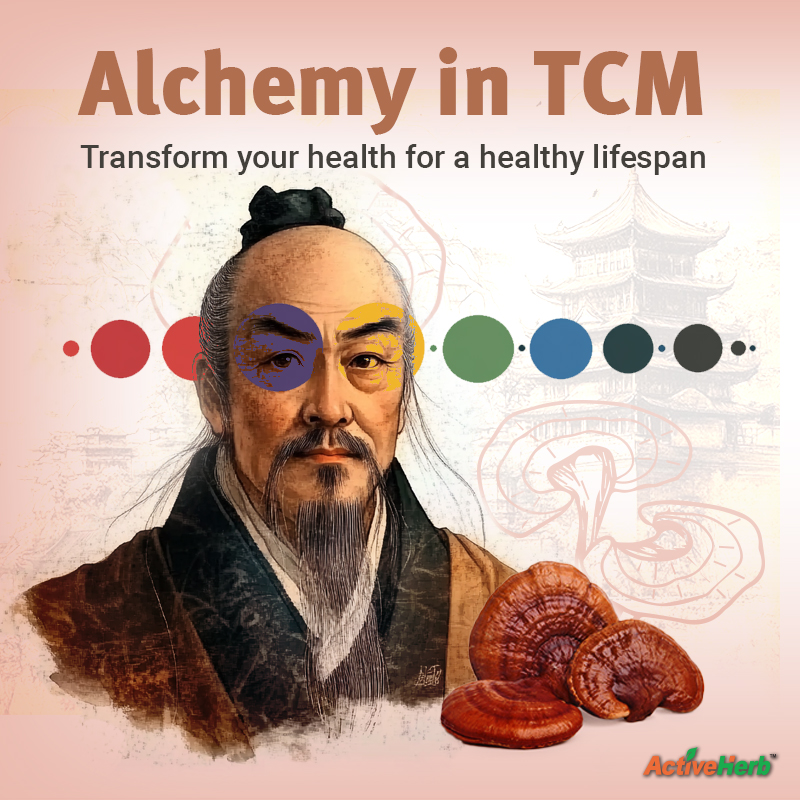Could TCM Mushrooms Be the Missing Link in Holding Back Cognitive Decline?
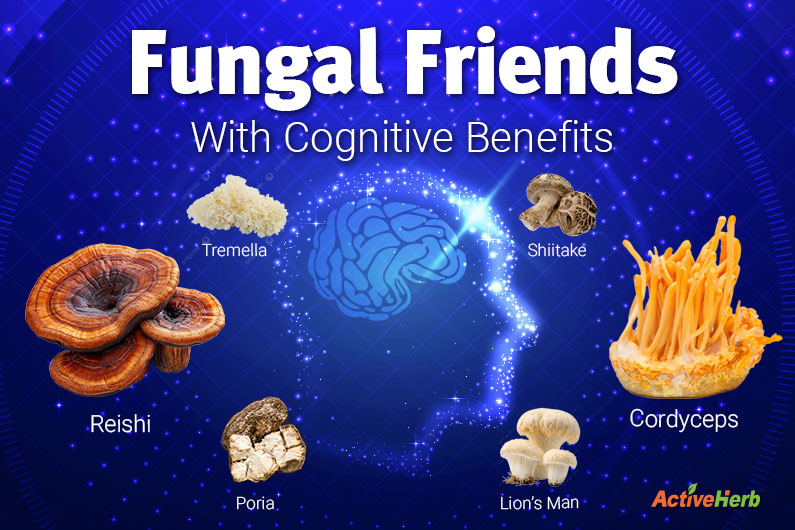
From wellness tea to cognitive function support, here’s why TCM Mushrooms matter...
Mushroom coffee. Cordyceps powder smoothies. Reishi immunity shots. Functional mushrooms aren’t just a trend—they’re practically a food group in the wellness world. And while ActiveHerb.com has covered this phenomenon before (see here), a new study published in the Journal of Food Science adds another impressive benefit to the list: central nervous system support.
For thousands of years, Traditional Chinese Medicine (TCM) practitioners have turned to mushrooms like Reishi (Ling Zhi) and Cordyceps (Dong Chong Xia Cao) to boost energy, stamina, immunity, and spiritual strength. But now, researchers in Shandong, China, believe these time-tested fungi may hold promise for protecting the brain against age-related decline.
The new study highlights the neuroprotective potential of bioactive compounds found in medicinal fungi. These compounds—including polysaccharides and triterpenoids—are showing promise in early lab models for these three actions:
- Protecting nerve function
- Reducing oxidative stress
- Calming inflammation in the brain.
How Medicinal Mushrooms May Support Brain Health
One of the study’s lead researchers, Dr. Yang Liu, notes that many medicinal mushrooms contain compounds that act as antioxidants and inflammation modulators. These effects are especially important for aging populations. This is because chronic inflammation and oxidative stress are known to accelerate cognitive decline.
According to the researchers, these mushrooms may:
- Scavenge free radicals that damage brain cells.
- Reduce inflammatory cytokines that disrupt neuron function.
- Support a healthy gut microbiome, which may indirectly support brain clarity and mood regulation.
- Improve cellular cleanup, known as autophagy, helping neurons stay resilient.
Spotlight on Reishi: The Immortal Mushroom
Known as Ling Zhi in TCM, Ganoderma lucidum (Reishi) is revered as the “Herb of Spiritual Potency.” It’s often used in formulas to calm the Shen (“the Spirit”), support immunity, and promote healthy aging. But Reishi may also play a neuroprotective role, with studies showing it helps support immune activity by protecting delicate neurons.
—-> Learn more about Reishi in TCM:
Reishi in TCM: The Immortal Herb With High Spiritual Potency
—-> Try Reishi extract granules for instant hot tea:
Shop Reishi Extract Granules
Cordyceps: A Fungus Among Us for Energy, Mood & More
Cordyceps (Cordyceps militaris), or Dong Chong Xia Cao in TCM, is traditionally used to support Lung and Kidney function, boost stamina, and nourish Jing (“the essence;: the body’s energetic bank account). But it’s not just a physical tonic. Modern studies show Cordyceps compounds may help support normal inflammation levels in the brain, potentially supporting recovery from stroke and moderating neurodegeneration in Parkinson’s models.
—-> Explore Cordyceps in TCM:
Cordyceps in TCM: A Fungus Among Us to Stay Sane & Energized
—–> Try Cordyceps Extract Granules:
Shop Cordyceps Extract
Why TCM Mushroom Research Matters Even If You’re Young
As life expectancy rises, so does the global incidence of Alzheimer’s, Parkinson’s, and other neurodegenerative diseases. While pharmaceutical drugs focus on symptom relief, they often fall short in halting disease progression. Medicinal fungi, by contrast, may offer broader systemic support that complements conventional therapies.
The study’s authors also point to the gut-brain connection. They point out that TCM mushrooms may improve cognition not just by acting on the brain directly. But also by improving gut microbiome health. This is an area that’s increasingly recognized as critical to mental performance.
What’s Next For ‘Shrooms and CNS Support?
Scientists are now identifying which mushroom compounds can cross the blood-brain barrier. For a compound to be effective for neurological health, this is a key requirement. Using advanced tools like mass spectrometry, researchers are isolating and testing these compounds. Some of these compounds are already in the early stages of pharmaceutical development.
Fantastic Fungi CNS Support Explained
In Traditional Chinese Medicine, the Doctrine of Signatures holds that the appearance of a plant or fungus reflects the organ or function it supports. When applied to edible fungi with central nervous system (CNS) benefits, the logic gets delightfully uncanny.
Take Ganoderma lucidum (Reishi/Ling Zhi) for example. With its woody, brain-lobe-like appearance and multi-tiered cap, Reishi visually mimics the folds of the cerebral cortex. TCM considers it a Shen (spirit)-nourishing herb. It’s no coincidence that its morphology (the shape and structure) resembles the seat of consciousness.
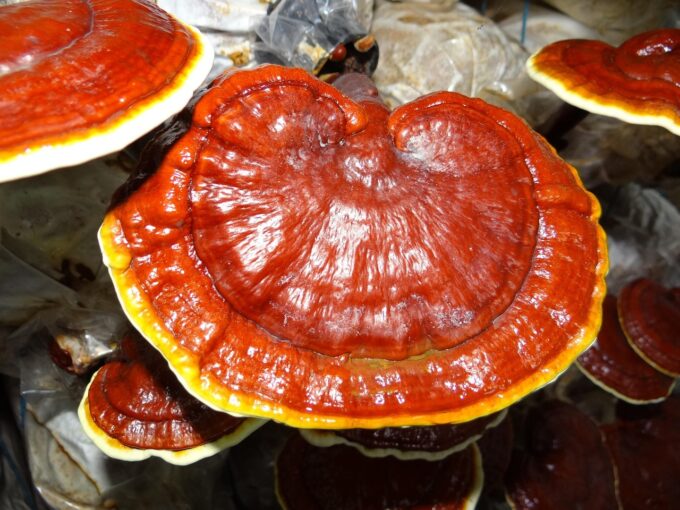
As for Cordyceps, it sprouts like delicate tendrils. The slender, thread-like plant structure resembles tiny synaptic branches or neurons. Pretty neat, considerting that both Western science and TCM support cordyceps for brain and energetic function. According to the Doctrine, its resemblance to sinewy nerve fibers hints at its ability to “unblock channels” and restore neurological balance.
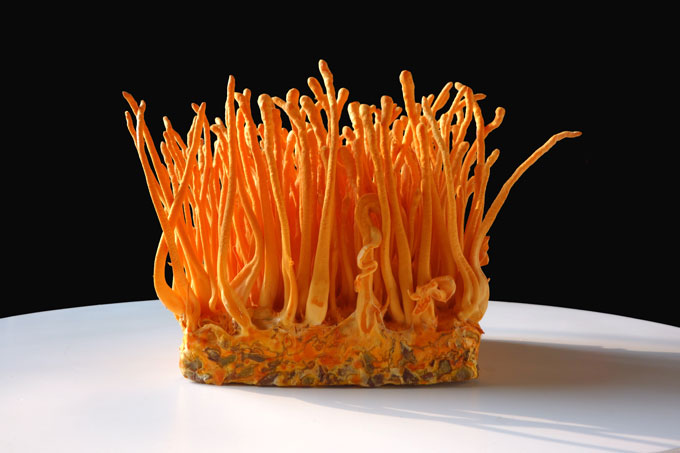
Other TCM Shrooms On Our Brain
While Reishi and Cordyceps dominate the medicinal mushroom conversation, other fungi in TCM also show promise for nervous system health:
Lion’s Mane (Hericium erinaceus)
Lion’s Mane is not part of classical TCM canon. However, it’s gained favor among researchers for its ability to stimulate nerve growth factor (NGF). NGF supports brain regeneration. Interestingly, Lion’s Mane resembles a cascading white brain. Its shaggy strands mirror myelinated nerves. According to the Doctrine of Signatures, this visible “brain-like” structure might have guided ancient herbalists to use it for memory and nerve repair centuries before neuroscience research confirmed its benefits.
(Study: Hericium erinaceus induces NGF synthesis in nerve cells)
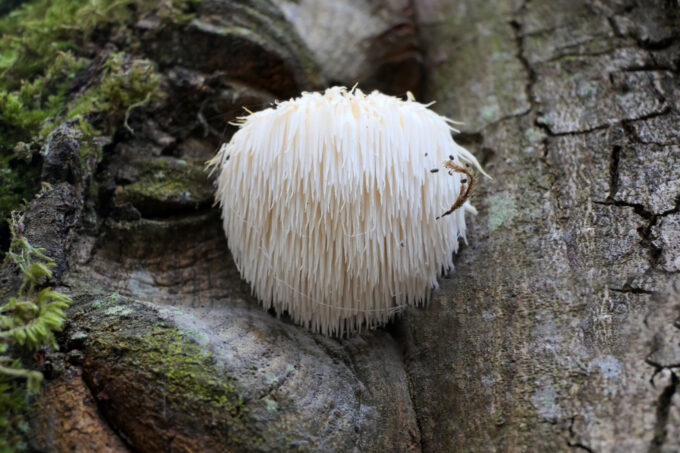
Poria Mushroom (Fu Ling)
A staple in many TCM formulas, Poria cocos is classically used to calm the Shen and strengthen the Spleen. Research suggests Poria may have calming and neuroprotective effects by modulating neurotransmitter systems and supporting healthy inflammation levels.
(Study: Neuroprotective Effects of Poria cocos (Agaricomycetes) Essential Oil on Aβ1-40-Induced Learning and Memory Deficit in Rats)
—–> Purchase Fu Ling extract granules
Tremella (Yin Er)
Also called snow fungus, Tremella fuciformis is traditionally used to nourish Yin and generate fluids. Emerging studies suggest it may exert antioxidant and neuroprotective effects beneficial for cognitive aging.
(Study: The Neuroprotective and Neurotrophic Effects of Tremella fuciformis in PC12h Cells)
Shiitake (Lentinula edodes)
Often overlooked for brain health, shiitake isn’t just a tasty stir-fry addition. It contains compounds that may regulate immune response and protect against neural inflammation. It’s also rich in B-vitamins and ergothioneine, an antioxidant studied for brain aging.
Final Thoughts On TCM Mushrooms
Together, these fantastic fungi provide synergistic support and not just for immunity or digestion, which have been the primary selling points in the wellness industry. TCM shrooms may also help cognition, clarity, and mental resilience.
The recent Journal of Food Science study highlights exciting Central Nervous System-protection potential for mushrooms like Reishi and Cordyceps.
But it’s important to remember that this isn’t a magic mushroom moment…
Simply sipping on a mushroom tea or adding a powdered extract to your smoothie won’t necessarily singlehandedly fend off neurological decline.
Neurodegeneration—whether in the form of Alzheimer’s, Parkinson’s, or cognitive fog—is a complex, multifactorial process. It involves inflammation, oxidative stress, impaired neurotransmission, mitochondrial dysfunction, and a host of genetic and lifestyle factors.
That’s why a holistic approach, rooted in TCM wisdom and potentially bolstered through Western intervention remains essential.
Functional mushrooms may play a starring role in cogntive health and neurodegenerative prevention. But they work best when cast as part of a full ensemble that includes clean nutrition, mental stimulation, movement, emotional harmony, having a solid social network, and, if needed, Western medicine.
References:
Liu X, Zhang G, Ling J. New dawn of edible and medicinal fungi unlocking central nervous system diseases. J Food Sci. 2025 Apr 26.
Li IC, Lee LY, Tzeng TT, Chen WP, Chen YP, Shiao YJ, Chen CC. Neurohealth Properties of Hericium erinaceus Mycelia Enriched with Erinacines. Behav Neurol. 2018 May 21;2018:5802634.
Lv Q, Di X, Bian B, Li K, Guo J. Neuroprotective Effects of Poria cocos (Agaricomycetes) Essential Oil on Aβ1-40-Induced Learning and Memory Deficit in Rats. Int J Med Mushrooms. 2022;24(10):73-82.
Park KJ, Lee SY, Kim HS, Yamazaki M, Chiba K, Ha HC. The Neuroprotective and Neurotrophic Effects of Tremella fuciformis in PC12h Cells. Mycobiology. 2007 Mar;35(1):11-5.
Apparoo Y, Wei Phan C, Rani Kuppusamy U, Chan EWC. Potential role of ergothioneine rich mushroom as anti-aging candidate through elimination of neuronal senescent cells. Brain Res. 2024 Feb 1;1824:148693.



